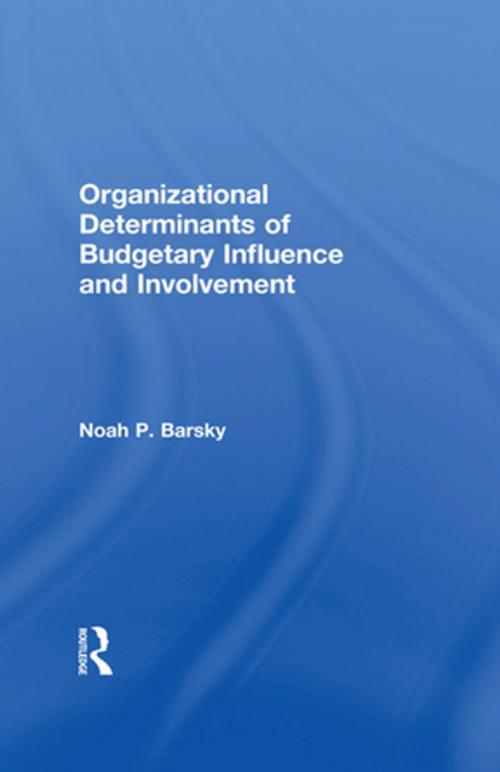| Author: | Noah P. Barsky | ISBN: | 9781135698539 |
| Publisher: | Taylor and Francis | Publication: | October 11, 2013 |
| Imprint: | Routledge | Language: | English |
| Author: | Noah P. Barsky |
| ISBN: | 9781135698539 |
| Publisher: | Taylor and Francis |
| Publication: | October 11, 2013 |
| Imprint: | Routledge |
| Language: | English |
Drawing on network theory from the organizational sociology literature, this book examines issues related to which organizational factors determine how employees influence the budgeting process. Data were collected from managers who participate in the budgeting process at a major apparel manufacturer. Social network analysis was employed to measure how the structure of the network of managers affects the budgeting process. The results show that budgetary influence is structurally determined and resides with managers holding central positions in the organizational network. Thus, while formal procedures determine which employees are involved in budgeting activities, only centrally positioned managers actually influence budgetary outcomes.
The findings indicate that influence, not involvement, is the key to empowerment in the budgeting process. This research suggests that researchers and practitioners should be aware of an organization's social structure when examining a participative budgeting process. The difference between formal designs and actual influence is indicative of a "rhetoric-reality gap" which can impair the effectiveness of management control systems.
Drawing on network theory from the organizational sociology literature, this book examines issues related to which organizational factors determine how employees influence the budgeting process. Data were collected from managers who participate in the budgeting process at a major apparel manufacturer. Social network analysis was employed to measure how the structure of the network of managers affects the budgeting process. The results show that budgetary influence is structurally determined and resides with managers holding central positions in the organizational network. Thus, while formal procedures determine which employees are involved in budgeting activities, only centrally positioned managers actually influence budgetary outcomes.
The findings indicate that influence, not involvement, is the key to empowerment in the budgeting process. This research suggests that researchers and practitioners should be aware of an organization's social structure when examining a participative budgeting process. The difference between formal designs and actual influence is indicative of a "rhetoric-reality gap" which can impair the effectiveness of management control systems.















